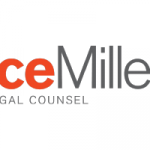


There are many different types of employment background checks that employers can perform on any job candidate. However, there is more than one kind of background check an employer can request. Background checks help employers confirm a prospective employee has a clean record and can be relied upon as honest and truthful – and would be a great addition to their company, whether it’s a large or small business.
With any hiring process, we’ve all had some kind of background check performed. There are so many different kinds of background checks, oftentimes hiring managers don’t know what will be included in the report, and job candidates don’t even know for sure what information an employer can actually check.
There are several different types of employment background checks depending on the situation and industry, including pre-employment background screening. To help you get a better understanding of each type of background check, we’ve compiled a list of 11 of the most common types of employment background checks and what each one consists of, including:
When you hear background check, you typically think of criminal history background checks. A criminal records background check is required in situations where a person or organization needs to know about any prior criminal activity of the applicant. More often than not, criminal background checks are performed to validate whether a candidate could pose a threat to customers or create an unsafe work environment.
Typically, a criminal history background check includes the following record searches:
Something to keep in mind is that different states use different variations of criminal background checks. For example, a name-based check and employment history check, or a national fingerprint-based check. It’s important to know what your state laws permit employers to run.
One of the most important background checks that employers should perform is confirming a candidate’s prior work experience. A background employment check allows employers and hiring managers to look back at the candidate’s past work history, revealing insights into their job stability, integrity, and loyalty to an employer. It can also generate questions about gaps in employment history and reasons for short stints at companies.
Typically, a prior employment background verification can confirm:
It’s important to verify that what a candidate says is their employment history IS their actual employment history. This type of background check can properly vet any candidate before making a job offer.
Attended is not the same as graduated, but the only way hiring managers can accurately determine a candidate’s education on a resume is through an education verification background check. Academic verification is primarily used to confirm or deny an applicant’s level of education claimed on an application, and where that education came from. The Fair Labor Standards Act (FLSA) makes it clear that some positions classified as Exempt require employees to have advanced or specialized education. Should the FLSA challenge the exemption, the employer must be able to prove the worker has appropriate credentials. An education verification check can validate this for employers.
An important and common practice for employers is to ask for references from their applicants. These reference background checks can be used to get a feel for what a potential employee would be like in the office. It also provides hiring managers a chance to ask about past performance, and fact check anything the applicant may have told them during the interview or on the application itself.
It’s important that employers use open-ended questioning in a reference check and the interview be as conversational as possible. This will ensure the answers you get are more than yes/no and that you pull as much detail as possible from the reference.
Certain industries, like driving or aviation, require periodic drug and alcohol testing. These types of tests are used to determine whether or not alcohol or illegal drugs are present in the person’s system. These types of tests ensure your current or future employees are in a healthy state of mind, unimpaired, and can be trusted to perform at your company.
These types of background checks usually require some amount of prior notice and can only be performed with permission. Often times these drug screens are processed as five-panel or 10-panel urinalysis, hair testing, and Breathalyzer.
Companies should be encouraged to perform a Sex Offender Registry Search with any potential employees. Such a background check will rule out potentially hiring someone with a past history of sexual offenses. An important background check to run for those hiring positions that deal with minors, schools, education, or daycares. Performing this background check service on applicants helps reduce a company’s risk of workplace sex offenses or violence. If not done, this can potentially lead to accusations of negligent hiring or retention lawsuits.
A credit background check looks into a prospective candidate’s credit history. A person’s credit history is a report from three of the largest credit agencies: Experian, TransUnion, and Equifax. These reports can be produced once a year for free by law, however some states, and even cities like New York City and Chicago, have made it illegal to base hiring decisions on credit reports and scores. The catch with these types of background check services is that they can only be performed with the express permission of the subject of the test. Employers can use a credit background check to prove whether or not a potential employee is fiscally responsible, especially when the position they are interviewing for deals closely with money or finances.
Employers should consider viewing public social media accounts and posts of potential employees to learn more about them. There are numerous pitfalls, however, to be aware of before relying on any information collected through an internet social media search such as Facebook, Twitter, or LinkedIn. While it’s possible to obtain useful, but unverified, information about a candidate for employment, care still has to be used to ensure that the information is true. The information may help “round-out” a candidate profile, but the usual reference and employee background checking will undoubtedly still be necessary. A comprehensive social media search may save your company time and money in the long run by helping you make a solid hire.
Can your job applicant drive 55? So long as you have their permission, employers can run a driving record check to prove any applicant or current employee has a safe driving history. Results from a driving record check include:
To carry out a driving record background screening, you’ll need each candidate’s full name (as it appears on his/her driver’s license), date of birth, social security number, address, driver’s license number, state of issue, and, of course, each candidate’s express permission to carry out the check in the form of a signed release that complies with the requirements of the Fair Credit Reporting Act.
One of the top falsehoods a person may put on their resume is fraudulent professional credentials. It’s a common occurrence for people to embellish accomplishments on resumes and job applications, and can be a challenge for hiring managers to prove whether or not the license or certificate was in fact earned. These can lead to hiring unqualified individuals or giving promotions to those that haven’t truly earned it. Confirming professional licenses and certificates can be used in all industries for all position titles, to verify if a degree or credential was received, to confirm the date awarded, and to identify any fictitious information included by the applicant.
Is the applicant who they actually say they are? Seems like a strange question to ask, but sometimes applicants may lie about their identity to gain employment. A simple trace of their social security number can help employers verify that the personal information provided by an applicant is truthful. Background check services can also verify if someone is eligible to work in the United States. By matching the information provided in their I-9 to the Department of Homeland Security and Social Security Administration’s record, employers can ensure they employ real people that are legal to work in the country.
Whether you’re an employee trying to learn the different types of employment background checks your employer can run on you, or if you’re a hiring manager trying to learn the information you can receive from different types of background checks, we hope this guide helps you out.
At Barada, our background checkers work with you to determine your organization’s needs. Each client is provided with a personally tailored employment-screening package that provides consistency of process, legal compliance, long-term savings, and the information necessary to make the best possible hiring decisions. Schedule a time to talk to one of our experts today.
As legislation surrounding the “Ban the Box” movement and other hiring restrictions continues to roll out, employers are increasingly uncertain of the most appropriate time to conduct applicant background checks. Historically, the most logical approach—and the one that affords the companies the most protection against “bad hires”—has been to conduct them as soon as candidates advance past initial resume evaluation. Now, that approach may cause organizations to violate applicable federal, state or local laws.
Overall, best practices still dictate screening as soon as possible, so companies with no locations that have applicable Ban the Box or other prohibitions can consider early screening in all situations. For firms that may be impacted by laws or ordinances that restrict the timing or usage of background checks, determining when to perform hiring screens in a manner that is both legal and in the company’s best interest requires careful consideration.
We know that mistakes are expensive and manual data entry is time consuming. That’s why we’ve been working with our key clients and satisfied customers to develop an automated process for delivering accurate data into the right system at the right time while reducing human capital costs across the board.
Our custom API for Barada Online connects to the following platforms:
Request your FREE 15-minute consultation today.
Once you have an established account, background check services are available through our web-based order, retrieval and status update production site called Barada Online. All of our employment screening services can be ordered easily through this user-friendly online system. Completed orders are retrieved online or delivered automatically by email. While the online service promotes quick turnaround times and ease of process, our first priority is still prompt and personal customer service.
We know that mistakes are expensive and manual data entry is time-consuming. That’s why we’ve been working with our key clients and satisfied customers to develop an automated process for delivering accurate data into the right system at the right time while reducing human capital costs across the board.
Our custom API for Barada Online connects to the following platforms:
Our background checks all follow federal, state, and local laws.
“We wanted an organization that had innovative and effective ways to improve the employment screening process. The staff at Barada have been very responsive. They understand how their services can assist us and will suggest creative solutions that meet the needs of the Archdiocese. We have been impressed with everyone from the human element on down.”
Ed Isakson, Human Resources Director, Archdiocese of Indianapolis
Request










